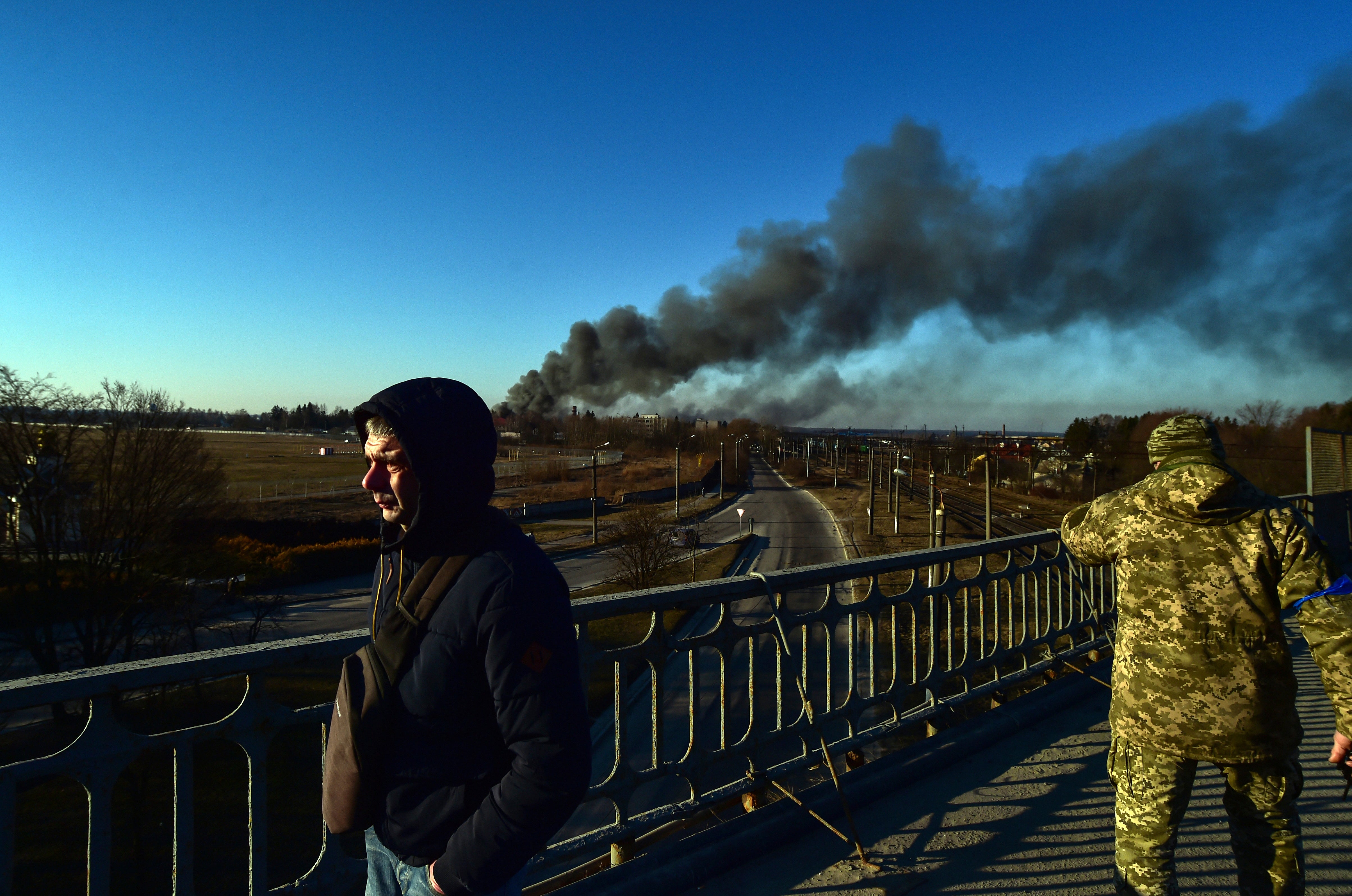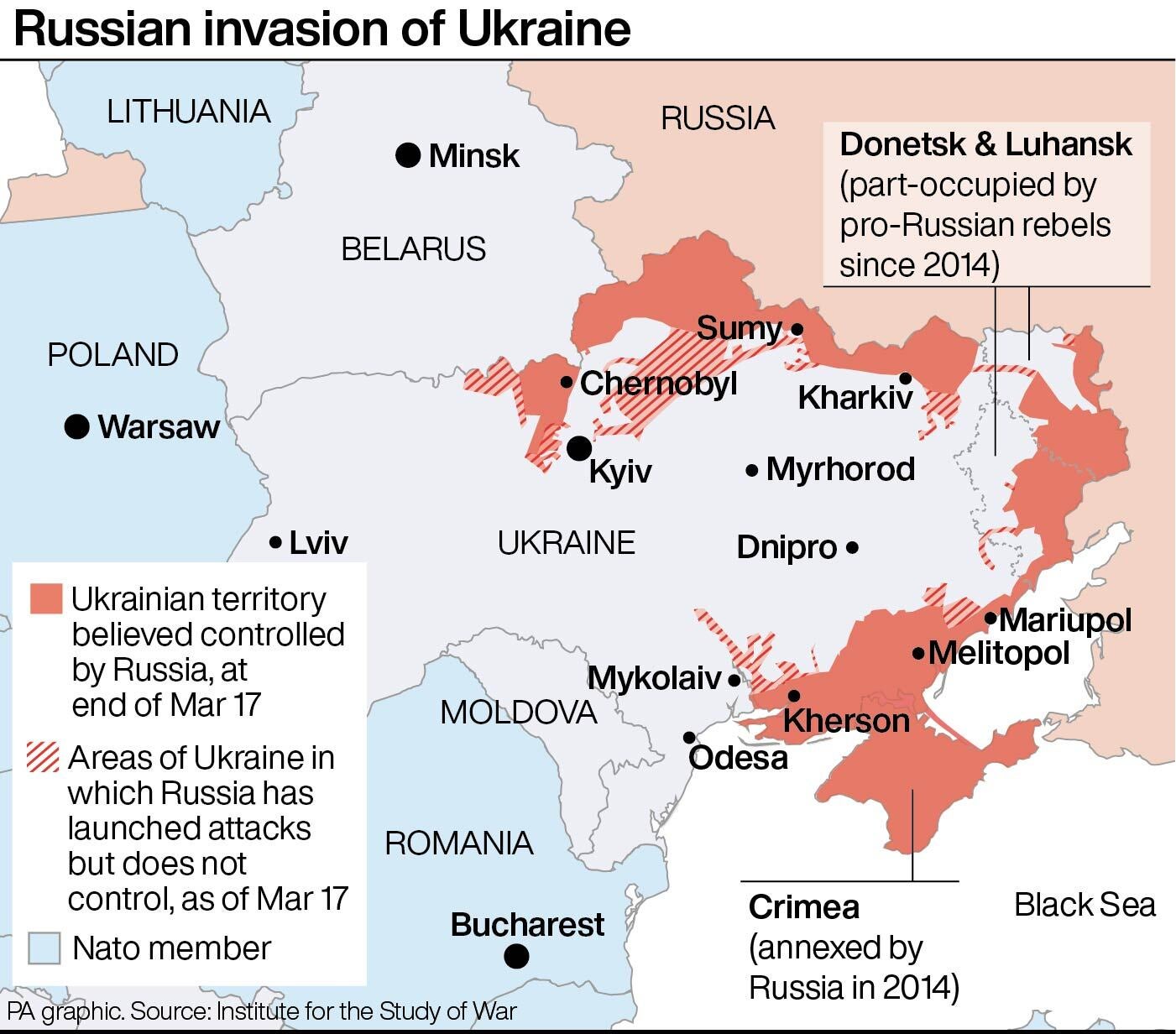Russia fires ‘unstoppable’ hypersonic missiles at Ukraine for first time ‘to destroy weapons depot’
British intelligence says Moscow forced into ‘pursuing strategy of attrition’ due to slow progress
Russia has claimed it used a hypersonic missile to strike a large weapons depot in western Ukraine.
It marks the first time a Kinzhal – or ‘Dagger’ – missile has been deployed since Vladimir Putin sent his troops into Ukraine, according to Russia’s Interfax news agency.
Igor Konashenkov, a spokesman for Russia’s defence ministry, said the “unstoppable” weapon was deployed on Friday and destroyed an underground warehouse storing ammunition for Ukrainian troops in the Ivano-Frankivsk region.
Kinzhal missiles are thought to have a range of around 1,250 miles.
In December, Putin said his country was the global leader in hypersonic missiles, whose speed, manoeuvrability and altitude make them difficult to track and intercept – or “invincible” – to use the Russian president’s own words.
Mr Konashenkov said Russia had also destroyed military radio and reconnaissance centres near the Ukrainian port city of Odessa using the Bastion coastal missile system, Interfax news agency reported.
It is not yet known if the strikes caused any casualties, and The Independent has been unable to verify the claims made by the Russian spokesman.
“The Kinzhal aviation missile system, with hypersonic aero-ballistic missiles, destroyed a large underground ammunition depot in the Ivano-Frankivsk region,” he told a briefing.

Hypersonic weapons are widely considered the next generation of arms due to the fact they can reach more than five times the speed of sound and the challenge they pose to anti-missile defence systems.
Putin previously said that his country only began to create them “in response to the US deployment of a strategic missile defence system”.
Kinzhal missiles were part of an array of weapons announced by Russia in 2018. At the time of the unveiling, Putin said of the West: “They need to take account of a new reality and understand ... [this] is not a bluff.”

The use of the weapons in Ukraine, however, is the latest sign that Moscow’s war is not going to plan as forces become increasingly desperate amid reports of military struggles and a fierce Ukrainian resistance.
Russia expanded its missile strikes to Lviv in the west of the country on Friday, launching an early morning attack on the city, according to the city’s mayor.
Heading into the weekend, there was also reported heavy shelling in the encircled cities of Mariupol, Kharkiv, Chernihiv and Sumy.
However, British intelligence continued to suggest Putin’s troops made “minimal progress” this week after being “stalled on all fronts” for a matter of days.
“The Kremlin has so far failed to achieve its original objectives,” the UK’s Ministry of Defence said in a tweet on Friday night.
It added Russia was being forced to change its operational approach “and is now pursuing a strategy of attrition”, which could explain the sudden deployment of these missiles.
The Independent has a proud history of campaigning for the rights of the most vulnerable, and we first ran our Refugees Welcome campaign during the war in Syria in 2015. Now, as we renew our campaign and launch this petition in the wake of the unfolding Ukrainian crisis, we are calling on the government to go further and faster to ensure help is delivered. To find out more about our Refugees Welcome campaign, click here. To sign the petition click here. If you would like to donate then please click here for our GoFundMe page.
Join our commenting forum
Join thought-provoking conversations, follow other Independent readers and see their replies
Comments
Bookmark popover
Removed from bookmarks